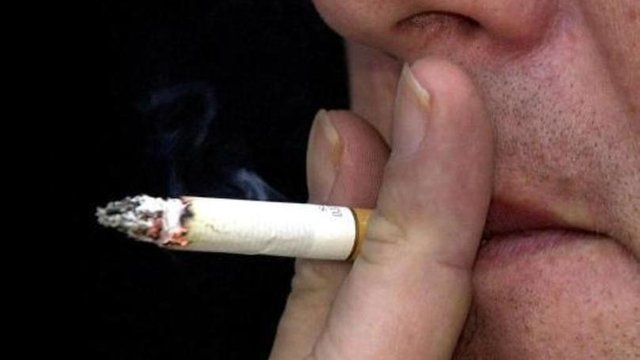Here's What Happens To Your Body When You Give Up Smoking

I'm part of that breed that's still partial to the odd cigarette. For all the health benefits of quitting, I can't help but feel I'd rather live a shorter life that allows me to warm myself up with a cigarette on a frosty winter night.
The scientific evidence says that it'll lead to a variety of terrible illnesses, but at least I'm in good company.
French intellectual and novelist Jean-Paul Sartre was informed in his later years that if he failed to give up smoking he would be forced to undergo a series of gruesome amputations. His response to his doctor was that he "wanted to think it over" and later when asked to name the most important thing in his life, he replied: "Everything. Living. Smoking."
With that said, they are called 'death sticks' for a reason, so for anybody who has made a New Year's resolution to pack them in, here's some inspiration. Here's what happens to your body in the days, weeks, months and years after you quit smoking...
Eight hours
The effects of withdrawal are strong as nicotine leaves the bloodstream and cravings start to happen. This is the time quitters feel their first craving for their former tried and trusted friend.
One day
The peak of anxiety and 'stress' levels. This is when the withdrawal symptoms are at their worst. Boy, oh boy, will you want a taste of that sweet, sweet nicotine, but you'll just have to get through it.
Two to three days
If you decide to go 'cold turkey' there will be no nicotine left in the body at this point. Taste and smell receptors have been given the chance to heal, meaning food will taste better.
One week
At this point you should be over the worst of it, however, many quitters experience a cough as the lungs look to clear themselves as much as they can.
Two weeks
Blood circulation returns to the same as a non-smoker, especially circulation to the gums and teeth. Tissue damaged by gum disease can also begin to recover.
A month
By one month in all withdrawal symptoms - from anger, anxiety, insomnia to mild depression - should have subsided.
Two months
The risk of a heart attack begins to drop and lung function improves.
Three months
By this point any post-smoking cough should have cleared and exercise should now be a lot easier.
Six months
The air sacs in the lungs have re-grown and healed some of the damage caused by smoking, however, sadly, the lungs will never be as healthy as a non-smoker. There again, they will never have the memories of the toking up behind the bike shed at school or bitching about a boss on a cig break, so swings and roundabouts.
One year
Ex-smokers are now 50 percent less likely to have a heart attack, heart disease or a stroke
Five years
After five years of being smoke-free the risks of getting diabetes are the same a non-smoker.
10 years and onwards
The risk of having a stroke is the same as that of a non-smoker and the chance of death from lung cancer is half that of a smoker. And after 10 years smoke-free, the risk of heart disease is the same as a non-smoker.
Well, this all sounds great, doesn't it? Good luck to anybody trying to give it up!
Hi! I am a robot. I just upvoted you!
I found similar content that readers might be interested in:
http://www.theboredmind.com/health/heres-happens-body-give-smoking/2/